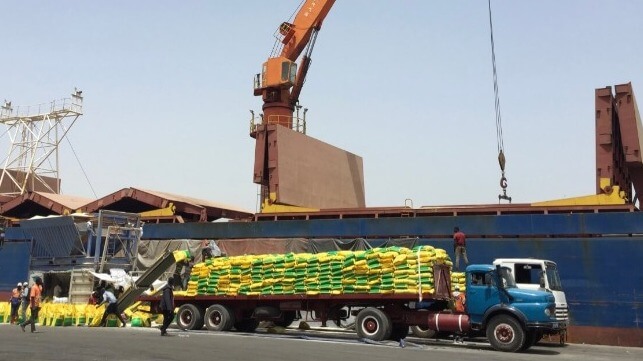Rice Cargoes Stranded at Major Indian Ports Due to Export Ban

Following India’s ban on export of various varieties of rice earlier this month, close to 20 ships are stuck at major Indian ports awaiting to load over 600,000 tons of rice, forcing sellers to pay demurrage charges.
On September 8, New Delhi made a surprise announcement restricting exports of broken rice. Further, a 20 percent duty was imposed on unmilled white rice, husked brown rice and semi-milled or wholly milled rice. Only basmati rice, India’s best-known rice variety, was exempt from these restrictions. This is a significant decision as India is one of the world’s largest rice exporter, representing over 40 percent of the global trade.
The finance ministry said that India needed to take steps to shore up food security and constrain inflation as supply chains are battered by the COVID-19 pandemic and the ongoing war in Ukraine.
The fact that the export ban was unexpected trapped cargo that was in transit before the government made the announcement.
“We have requested the government to provide concession to this transitional cargo as we are paying hefty demurrage charges. Apart from the 600,000 tons of rice waiting for loading at berthed vessels, a further 400,000 tons is stuck at port warehouses and container freight stations (CFCs) even though contracts are backed by letters of credit (LCs),” B.V Krishna Rao, president of the Rice Exporters Association, India told Reuters.
During the wheat ban effected in May, the Indian government provided exemptions for contracts backed by LCs. For this particular ban, such reliefs are not applicable, disadvantaging sellers who already have payment guarantees from buyers.
Partly, some rice consignments are stuck due to the ban. For others it is due to traders refusing to pay the 20 percent duty over the agreed price.
Most of the delayed cargo was destined for China, Senegal, Sri Lanka and United Arab Emirates.

that matters most
Get the latest maritime news delivered to your inbox daily.
Meanwhile, on Wednesday Krishna Rao said the government had agreed to review some aspects of the ban, specifically to release cargo that was in transit and now held up in ports.
“We have met the officials of the Directorate General of Foreign Trade (DGFT) and finance ministry to sort out the issue. We have asked DGFT to allow shipments of the rice which we had entered into contract before the export duty and the ban came in,” said Krishna Rao.
